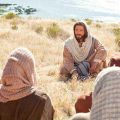Dear Gramps
I read your article concerning that we need to forgive and forget and have a problem with it. I agree with the affect on those who don’t forgive but it appears to me from my own experience that those who commit offenses seem to continue on doing so and many times with impunity. I have seen leaders who are over-bearing remain in office for full term
because of the reluctance to upset the chain of command so to speak. Why are the scriptures more concerned with those that take offense than those who seem to delight in giving offense? I see church members in general who are totally insensitive to others around them. I am not without sin so I worry that I do not act that way. Any help would be appreciated in clearing up this seeming riddle.
Peter
Dear Peter,
What you describe happens too often in the Church. Many members have gone “inactive” due to the actions and comments of others. Those that give offense will be judged for their actions, but we need to leave this judgment to the Lord and His leaders who have the spirit of discernment. In “Lectures on Faith”, pp. 45-46, Joseph Smith stated: “Men must have knowledge of the attribute of judgment in God if they are to have faith and gain salvation …no sooner is the idea of the existence of this attribute planted in the minds of men, than it gives power to the mind for the exercise of faith and confidence in God, …believing that in due time the Lord will come out in swift judgment against their enemies and they shall be cut off from before him, and that in his own due time he will bear them off conquerors, and more than conquerors, in all things.” The Lord gave us the following counsel found in Doctrine and Covenants section 64: “10 I, the Lord, will forgive whom I will forgive, but of you it is required to forgive all men. 11 And ye ought to say in your hearts—let God judge between me and thee, and reward thee according to thy deeds.”
Those that go inactive will be judged for their actions, their lack of commitment to the Gospel and for not keeping the commandments of the Lord. Again, the judgment of these individuals needs to be left to the Lord. Many of the early leaders of the Church fell away for one reason or another. Brigham Young and Heber C. Kimball were the only two of the original twelve who did not fall away into inactivity. Those that fell away probably felt justified in their actions, but will their reasons carry much weight when they stand before the judgment seat of the Lord?
As members of the Church we need to be concerned with working out our own exaltation. We can’t let the actions of others interfere with our activity or progression in the Kingdom of God. We need to follow the counsel of our leaders and the Lord and do everything within our power to help our fellowmen do likewise. We need to remember the counsel found in Doctrine and Covenants 132, the Lord gave to the Prophet Joseph Smith in Liberty jail: “6 If thou art accused with all manner of false accusations; if thine enemies fall upon thee;…that all these things shall give thee experience, and shall be for thy good. The Son of Man hath descended below them all. Art thou greater than he? Therefore, hold on thy way, and the priesthood shall remain with thee; for their bounds are set, they cannot pass. Thy days are known and thy years shall not be numbered less; therefore, fear not what man can do, for God shall be with you forever and ever.”
Gramps







